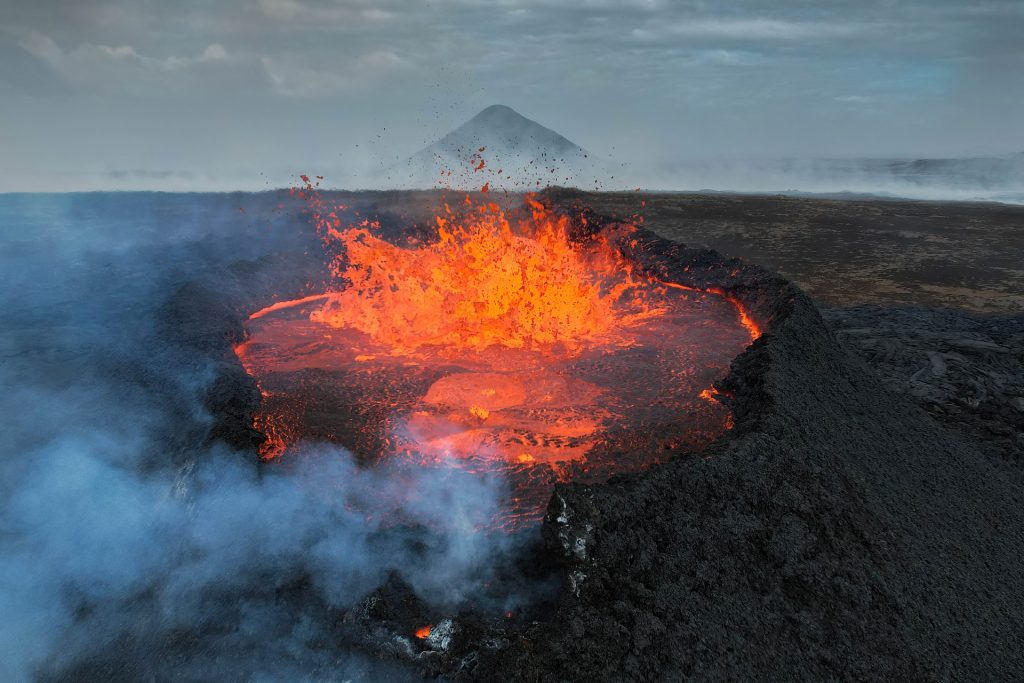Saturday’s volcanic eruption, the fourth and most powerful since December, has experts predicting more to come.
Others are reading now
The eruption on Saturday evening on the Reykjanes Peninsula in southwestern Iceland is the fourth and thus far the most powerful since December.
This indicates that the peninsula’s volcanic systems, after nearly 800 years of dormancy, have entered an active period, according to Rikke Pedersen, head of the Nordic Volcanological Center at the University of Iceland.
“The tectonic plates in Iceland are moving apart. When the plates can no longer stretch and need to be supplemented with material from greater depths, we enter a period of volcanic activity,” she says.
During the eruption on Saturday evening, two kilometers northeast of the port town of Grindavik, 700 people were evacuated from around the famous tourist attraction, the Blue Lagoon.
Also read
Since March 2021, there have been seven eruptions on the peninsula, which had not registered any volcanic activity since 1241.
A New Era
Since March 2021, there have been seven eruptions on the peninsula, which had not registered any volcanic activity since 1241. According to Rikke Pedersen, this new period of eruptions could last several hundred years.
“When there is an eruption period, it typically alternates between the five volcanic systems on the peninsula. The period can last several hundred years,” Pedersen comments.
The civil defense is now working to ensure that heating pipes, water pipes, and fiber optic cables are not destroyed by the lava.
Authorities have been well-prepared for the task, according to Pedersen, and “the entire evacuation of the Blue Lagoon went smoothly, and there have been no lives in danger.”
“I would say that people can remain calm. But, of course, these are tremendous natural forces, and one must have respect for them. It’s not always possible to prevent the destruction of infrastructure,” says Pedersen.
It is still unclear how long the latest eruption will last, but the intensity of the lava flow was reported to be decreasing on Sunday.


